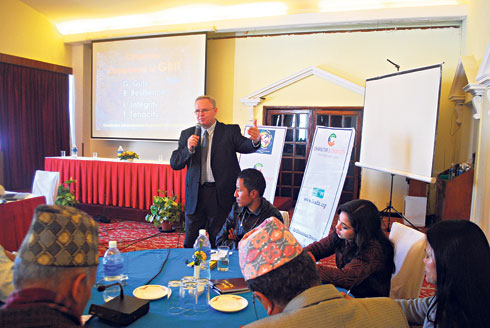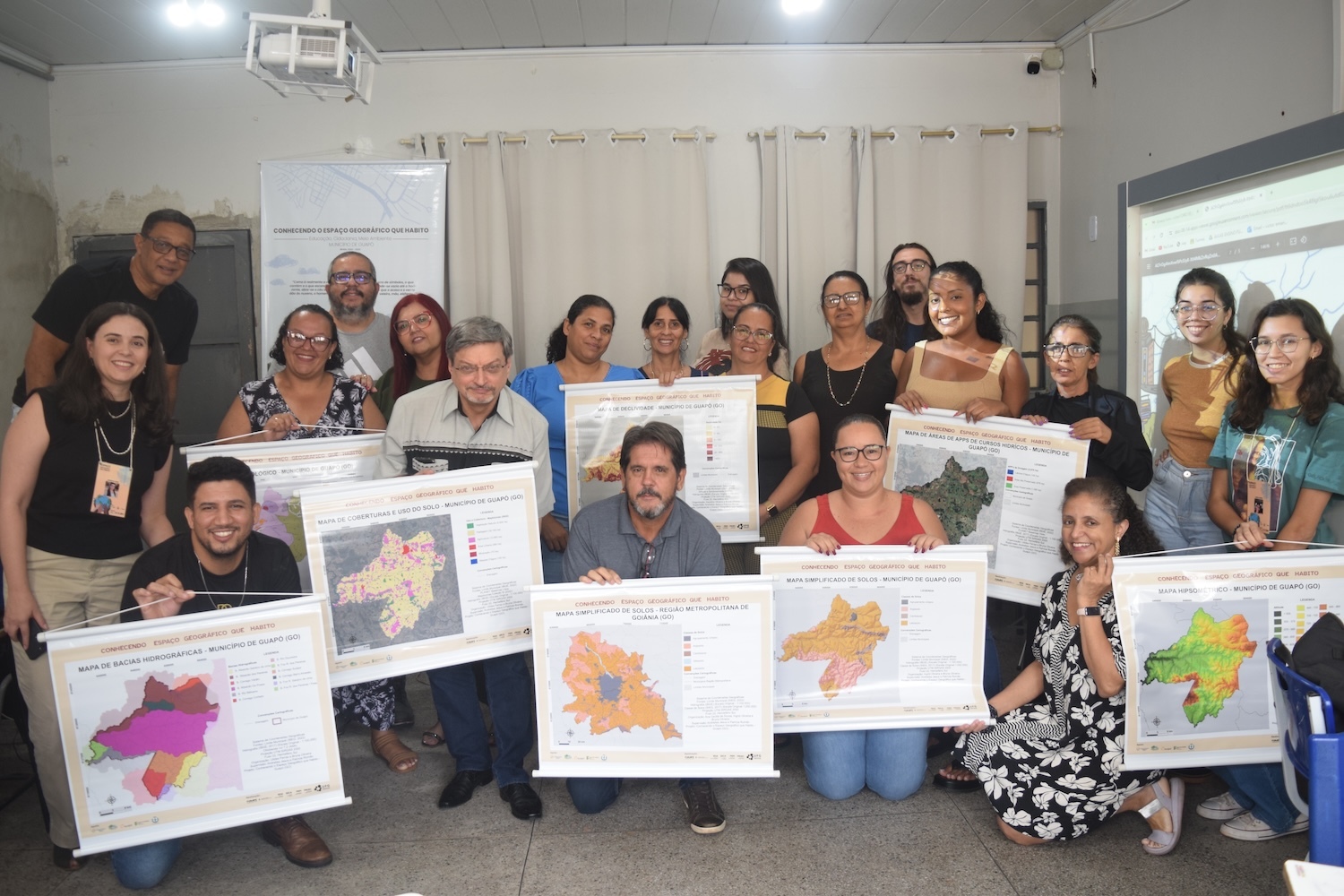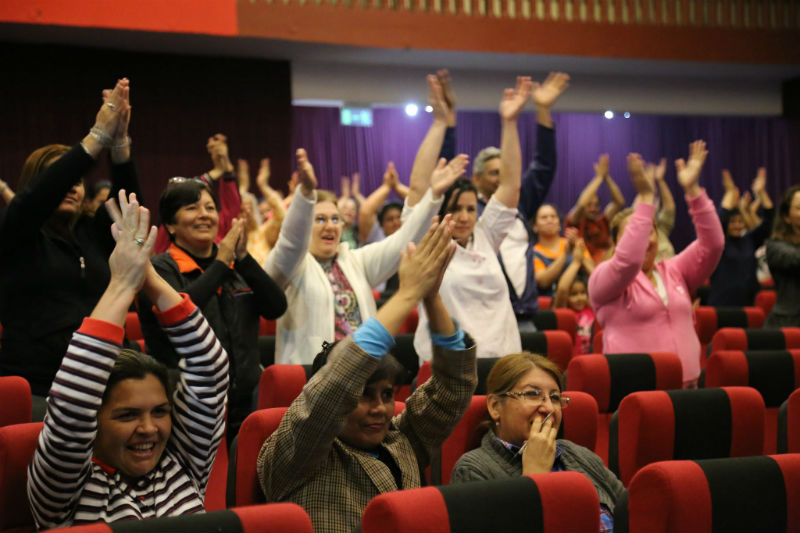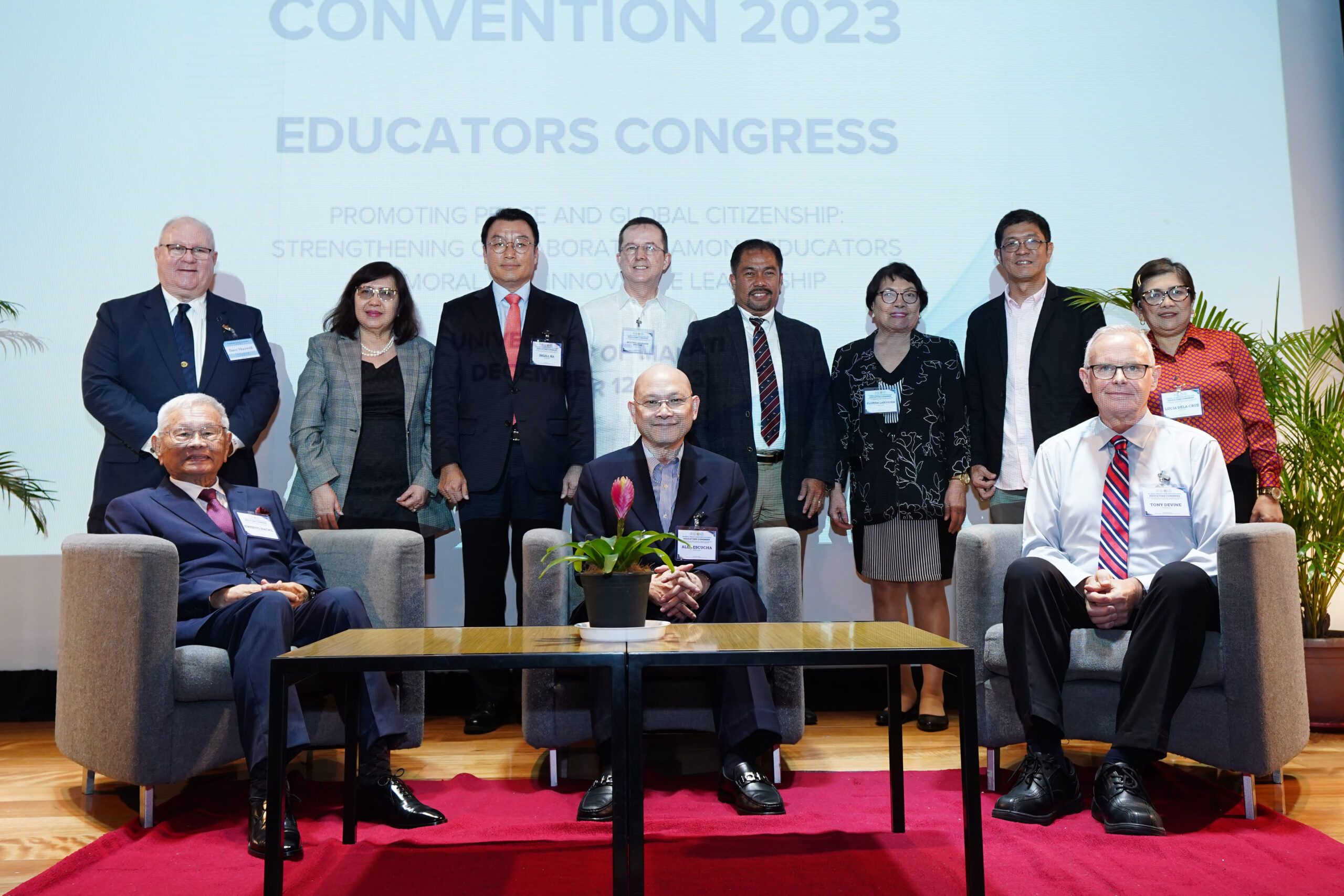Note: This article originally appeared in the December 17, 2013 issue of Republica, published in Kathmandu, Nepal.
Interactive Teaching for Better Education

Dr Tony Devine introduces the ‘Character and Creativity Initiative’ at a presentation. (Ruby Rauniyar)
By Ruby Rauniyar
KATHMANDU, Dec 17: “Be cheerful when you enter the classroom and welcome your students with a smile. Ask them how they’re doing. If the teacher is jovial when he’s teaching his students, they respond by studying well.”
These statements were made by Global Peace Foundation Vice Chairman Dr. Tony Devine during a program organized to train school teachers and principals on Monday.
Devine pointed out that schools in countries like Kenya, Paraguay, Brazil, Japan, Philippines, Korea, Indonesia, Nigeria and USA have seen an improvement in their education standard since the teachers initiated the ‘Character and Creative Initiative’ at the school level.
Dr. Devine said that the majority of teachers in Nepal are only concentrating on exam-oriented teaching in their classrooms. He pressed upon the fact that schools worldwide are now focusing on producing excellent education and good students by introducing character building in their students from an early level.
“Teachers in Kenya are always cheerful when they enter their classrooms,” Dr. Devine narrated, “The teachers believe that it’s more important for students to focus on character building and developing their creative skills than totally rely on their curriculum and course books.”
He added, “The classroom becomes more effective when the learning process involves teachers and students interacting face to face.”
Dr. Devine also observed that the teachers in Nepal are still fully dependent on course books and limit themselves to the provided curriculum. He said there won’t be any significant improvement in the education standard unless this traditional approach to teaching will be changed.
According to him, education in the twenty-first century should be based on students. “Only when there is interaction between students and teachers will the students have fun while learning,” he advises, “Eye contact should be maintained with every student.”
He says that seeing a teacher in a bad mood will result in the students having a negative impact on their studies.
Through gestures and role play, Dr. Devine imparted teaching techniques and excellent ways to build students’ characters to the participating school teachers, principals and representatives from the Ministry of Education (MoE) at the program.
Pointing to a research, he said that each child is special and creative, and teachers ought to teach them to be successful in life rather than just encouraging them to focus on their studies.
The present tradition of teaching students, whereby students are just expected to listen to their teachers, needs to be replaced by interactive classroom sessions. For this, inter-school discussions—including principals, teachers and students—communicating the need to develop good character building education should be organized, he said.
He also stressed upon the importance of a good teacher-student relationship which will create a healthy learning environment. Dr. Devine made clear that the current structure of the classroom where students sit rows upon rows and where teachers just lecture the students will never be an effective teaching method. The structure of the classroom should be changed, he advised.
“It’s sufficient to change the teaching culture in the classrooms in order to improve the education standard. And it won’t place any financial burden on the government,” he said. “It is also due to the negative effect of the present teaching method that violence in schools exists today.”
Attending the program were school representatives from 10 government and five private schools from the Valley, representatives from MoE, education experts and teachers.
Chairman of the Humanitarian Society of Nepal Mahesh Kunwar stated that it is because the children are still being taught with the same teaching techniques from 75 years ago that education has lost its effectiveness today. He agreed that to produce the much-needed skilled manpower for the country, the education system has to be thoroughly revised. Right from the school level, an education system focusing on character building of the students should be developed.
Tilangatar Higher Secondary School’s Vice Principal Bhupal Gautam shared his belief that the classroom structure and the teaching techniques embraced by Nepali education system are flawed, hence education in the country has not been able to improve.
“Dr. Devine’s presentation has been very effective. It’s very important for a teacher to know his students closely,” Gautam said, “Students are affected when a teacher enters their class with an angry face, and it’s something Nepali teachers have been doing.”
He added, “We’ve been giving teacher based education at present. Now, we should accept interactive teaching techniques in the classroom so that our education system will progress.”
Roj Nath Pandey, Assistant Spokesperson at MoE also concurred with Dr. Devine’s statements that accepting changes in the classroom structure and shifting the focus on character building and creativity of the children will help better the education system in Nepal.
“It’s imperative that education in the twenty-first century give children practical life lessons instead of just bookish knowledge,” he said.



